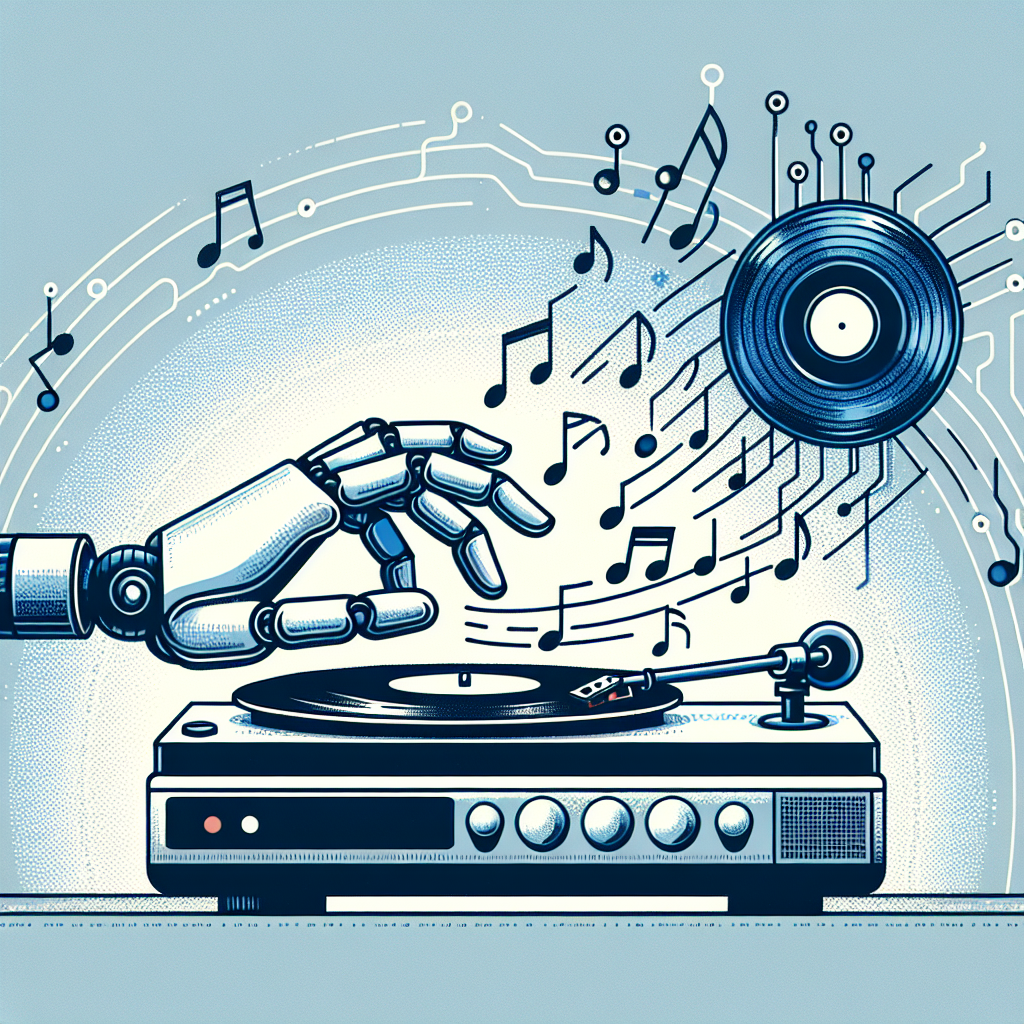Music recommendation algorithms have become an integral part of our daily lives, helping us discover new songs, artists, and genres that we may not have otherwise come across. These algorithms are powered by artificial intelligence (AI), which plays a crucial role in analyzing and understanding our music preferences. In this article, we will explore the role of AI in music recommendation algorithms and how it is shaping the way we consume music.
AI in Music Recommendation Algorithms
AI has revolutionized the way music is recommended to users by creating personalized playlists based on their listening habits and preferences. This is made possible through machine learning algorithms that analyze vast amounts of data to understand the patterns and trends in the music that we enjoy. By doing so, AI can predict what songs or artists we are likely to enjoy and recommend them to us accordingly.
One of the key components of music recommendation algorithms is collaborative filtering, which involves analyzing the preferences of other users with similar tastes to make recommendations. This is done by comparing the listening history of different users and identifying patterns and similarities in their music preferences. By leveraging the collective knowledge of millions of users, AI can create personalized recommendations that are tailored to each individual user.
Another important aspect of music recommendation algorithms is content-based filtering, which involves analyzing the characteristics of the music itself to make recommendations. This can include factors such as genre, tempo, mood, and instrumentation. By analyzing these features, AI can recommend songs that are similar in style or content to the music that a user enjoys.
In addition to collaborative filtering and content-based filtering, AI also uses natural language processing (NLP) to analyze the text data associated with music, such as user reviews, artist biographies, and song lyrics. By understanding the context and sentiment of this text data, AI can gain insights into the preferences and tastes of users, which can be used to make more accurate recommendations.
Overall, AI plays a crucial role in music recommendation algorithms by analyzing data, identifying patterns, and making personalized recommendations based on the preferences of individual users. This has revolutionized the way we discover and consume music, making it easier to find new songs and artists that we may not have discovered on our own.
FAQs
Q: How does AI determine what music to recommend to users?
A: AI uses machine learning algorithms to analyze vast amounts of data, including user listening history, music characteristics, and text data associated with music, to make personalized recommendations based on individual preferences.
Q: Are music recommendation algorithms always accurate?
A: While music recommendation algorithms strive to make accurate recommendations, they are not always perfect. Factors such as user feedback, changes in music preferences, and new releases can impact the accuracy of recommendations.
Q: How can users improve the recommendations they receive?
A: Users can improve the recommendations they receive by providing feedback on the songs and artists they enjoy, exploring different genres and styles of music, and updating their preferences regularly.
Q: Are music recommendation algorithms biased?
A: Music recommendation algorithms can be biased if they are trained on data that is not representative of all users. To address this issue, developers are working to create more diverse and inclusive datasets to train the algorithms.
Q: How can AI enhance the music listening experience?
A: AI can enhance the music listening experience by providing personalized recommendations, creating custom playlists, and helping users discover new songs and artists that they may not have otherwise come across.
In conclusion, AI has transformed the way we discover and consume music through personalized recommendations that are tailored to our individual preferences. By leveraging machine learning algorithms and analyzing vast amounts of data, AI can make accurate and relevant recommendations that help us explore new songs, artists, and genres. As technology continues to advance, we can expect music recommendation algorithms to become even more sophisticated and intuitive, enhancing the way we interact with music in the digital age.

